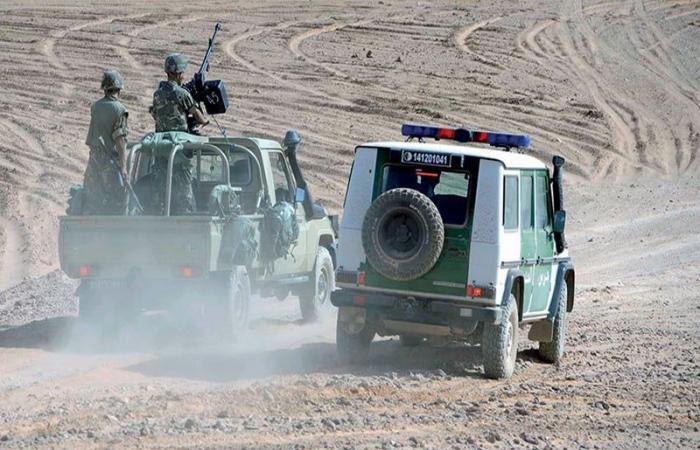The incursion of Algerian soldiers into Mauritanian territory, under the pretext of tracking down gold miners or terrorists, cannot be seen as a simple border incident. This episode, which took place in the Chagat region eight kilometers from the Algerian borders, is part of a series of chaotic demonstrations by an Algerian army at bay.
The ANP, visibly overwhelmed by the internal unrest in southern Algeria and incapable of maintaining consistency between sovereignist speeches and actions on the ground, has bitten its tail. Last Friday, an Algerian armed patrol crossed, weapons in hand, without any warning and without the slightest coordination with the authorities in Nouakchott, the usually peaceful Mauritanian borders.
The event, disturbing to say the least, shocked local gold miners who were legally engaged in artisanal mining. The latter, faced with armed soldiers evoking a hypothetical terrorist presence, immediately alerted the Mauritanian authorities.
The national gendarmerie of Mauritania, accompanied by representatives of the public company responsible for the mining sector, went to the site, pushing the intruders to turn back after providing justifications that were as clumsy as they were unconvincing. This gesture, widely perceived as a flagrant violation of Mauritanian sovereignty, illustrates once again the questionable ability of the Algerian military to distinguish between hunting for gold miners and respect for international laws.
If Mauritania avoided an escalation thanks to the restraint of its forces, this event constitutes a clear violation of its sovereignty, a flagrant contradiction with the principles that Algeria proclaims loud and clear when it comes to its own borders. Indeed, the capos regime of Algiers, which likes to present itself as a pillar of sovereignty and independence in Africa, exposes here its blatant contradictions.
By illegally entering Mauritania, Algeria is flouting the very principles it establishes as national doctrine. Even more worrying, these actions risk compromising its relations with its neighbors, already weakened by historical disputes and a growing distrust of Algiers. This intrusion into Mauritanian territory comes in a context in which the People's National Army (ANP) faces a series of domestic challenges.
Army stuck in its internal conflicts
The south of Algeria is the scene of bloody clashes between the army and local independence movements. According to recent reports, at least 15 Algerian soldiers have been killed and around 30 injured in repression operations targeting these groups. Despite the massive deployment of the 4th military region and the logistical support of the 6th region, the Algerian forces are struggling to contain rebels better adapted to the terrain and supported by local populations exasperated by military abuses.
This violence in Algeria, notably in Tinzaouatene, Bordj Badji Mokhtar and Timiaouine, illustrates a cornered army, using brutal methods against combatants, as well as against innocent civilians. This repressive spiral betrays a chronic inability to establish a clear and legitimate strategy to respond to local demands.
The porosity of the borders, exacerbated by the chaos in southern Algeria, has led to excessive militarization of border areas often inhabited by cross-border populations sharing close cultural and economic ties. In Mauritania, this dynamic takes the form of armed incursions disguised as anti-terrorist operations, reflecting the inability of Algerian forces to quell internal unrest and their propensity to export these tensions to neighboring territories.
This aggressive behavior calls into question Algeria's credibility as a regional actor. An army supposedly guaranteeing stability on the contrary exports its instability, in defiance of international rules. Recent events demonstrate a worrying strategic decline for a military institution which, under the crazy commands of the senile capo, Saïd Chanegriha, seems more concerned with managing internal crises in Algeria than with respecting international standards.
The incursion into Mauritania cannot be seen in isolation; it is part of a broader logic where the Algerian army, overwhelmed by local insurrections, acts urgently and without discernment. Ultimately, the ANP's inability to manage internal unrest in Algeria while respecting international borders reflects an army that is teetering under the weight of its contradictions and strategic failures. By wanting to control everything, it no longer controls anything – neither its borders, nor its regional image.






